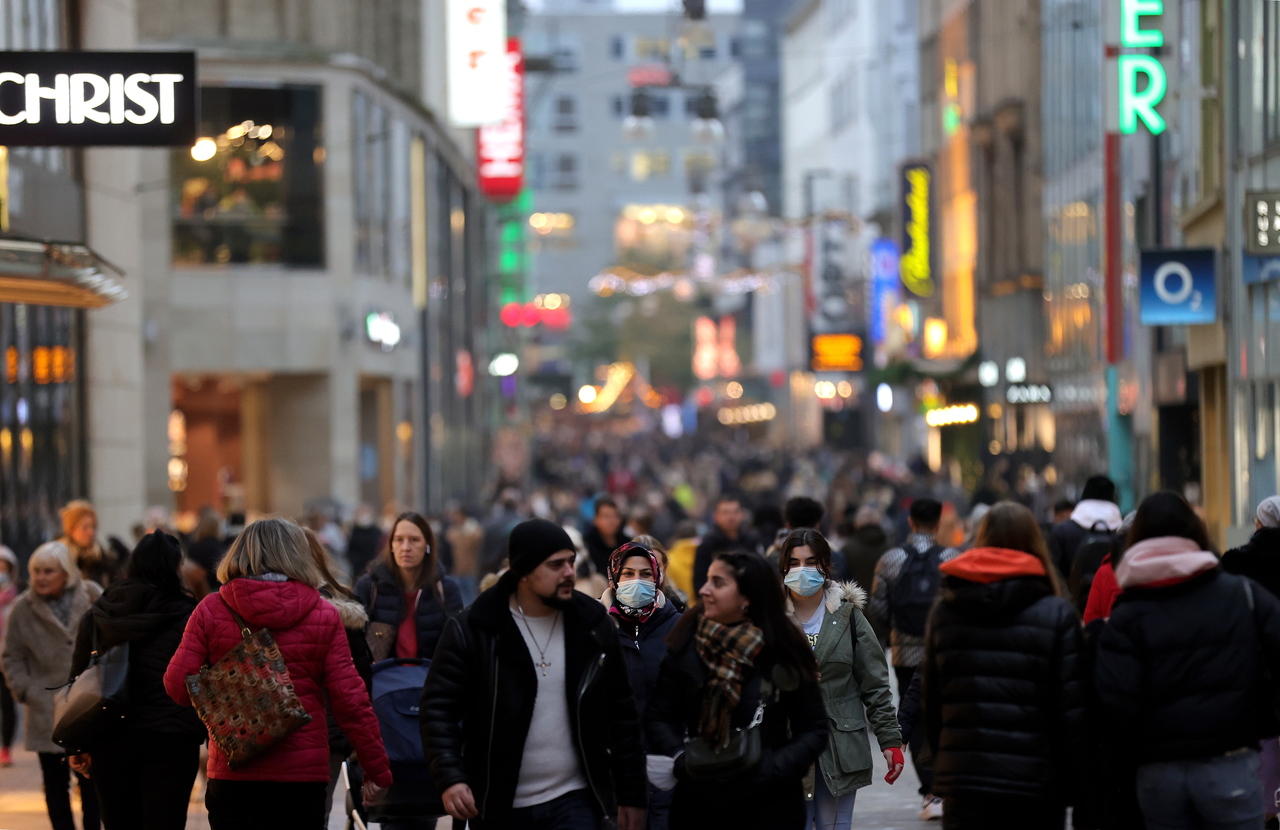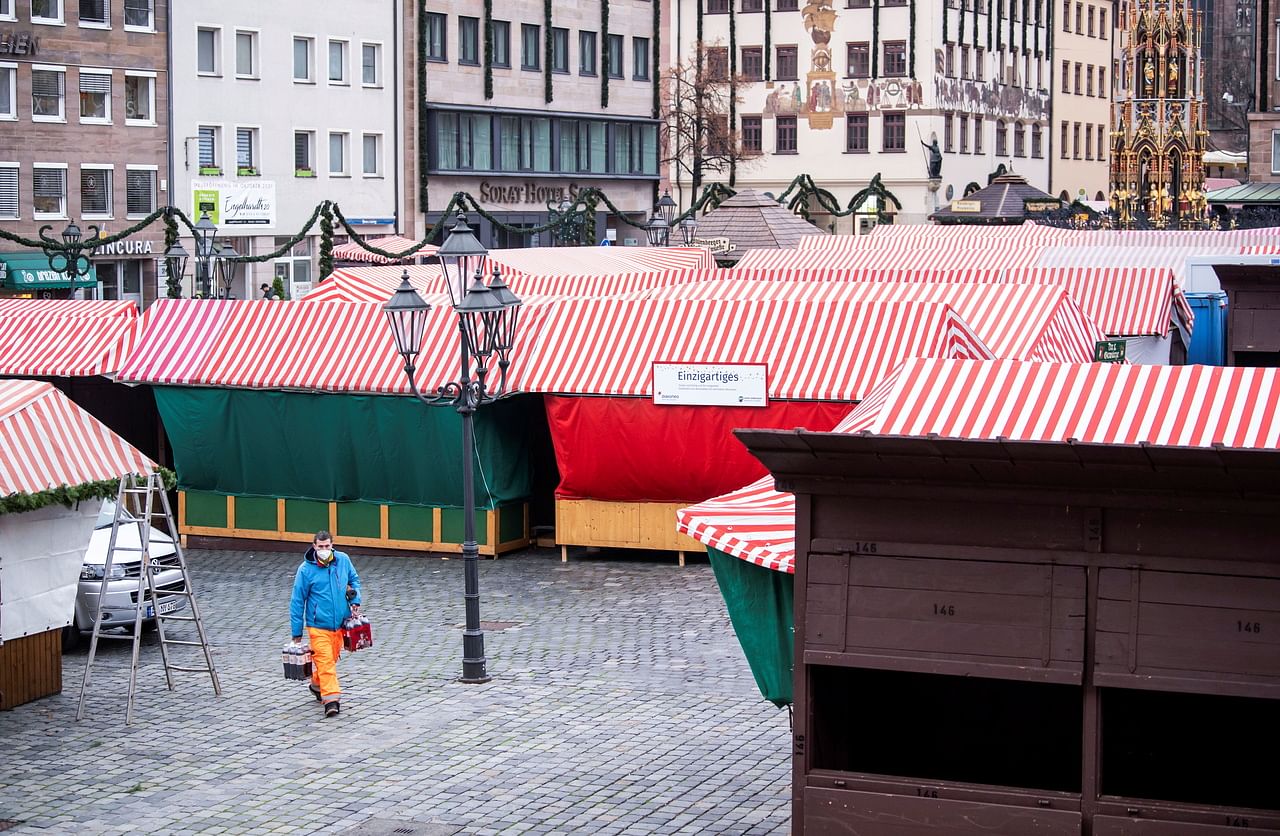European nations may follow Austria’s tough Covid-19 policy
Sign up now: Get ST's newsletters delivered to your inbox

Germany has decided last week to ban unvaccinated people from access to restaurants, bars, and public events.
PHOTO: EPA-EFE
Follow topic:
LONDON - Germany has warned that it may follow neighbouring Austria which goes into a full lockdown on Monday (Nov 22) as coronavirus cases hit new highs throughout Europe.
And other European governments are following the policies of Austria, including the imposition of serious restrictions on the movement of those refusing to be vaccinated and plans to make vaccination mandatory.
The much-feared fourth wave of infections is now very much a European reality, with registered infection rates soaring by over 55 per cent over the past week across the continent.
The biggest jumps are now recorded in Austria and the Netherlands, but there is also a steep rise in German pandemic figures. In comparison, infection rates in Britain, which last month were among the worst in Europe, are now only half of that in Austria.
The Austrian government responded by initially declaring a lockdown only for the unvaccinated. Those who cannot produce proof of a full vaccination course were barred from restaurants, bars, clubs and a variety of other public places.
Yet it soon became clear that the measures were not enough, so Austrian Chancellor Alexander Schallenberg announced that a lockdown for everyone would start from tomorrow.
"In view of the serious situation, there was no other option but to impose these restrictions on the vaccinated again," said Mr Schallenberg.
"The lockdown for everyone will apply for a maximum of 20 days," he added.
Austrian students will have to go back to home schooling, restaurants and most stores will be closed, and cultural events will be cancelled.
But the real novelty by the Austrian government is the announcement that a requirement to be vaccinated will be introduced from Feb 1 next year.
Austria will thus become only the fourth country in the world to implement compulsory vaccinations - after Indonesia, Micronesia and Turkmenistan.
The Austrian Chancellor attributed the need for this measure to the spread of conspiracy theories.
"There are 'too many political forces, flimsy vaccination opponents and fake news' in our country that incite too many people not to get vaccinated," said Mr Schallenberg. "The results are overcrowded intensive care units and enormous suffering."

Germany has ordered the closure of the Nuremberg market, one of the country's most lavish and well-known Christmas venues.
PHOTO: REUTERS
Neighbouring Germany appears to be going through a similar debate.
Faced with a deteriorating health situation, German Chancellor Angela Merkel and leaders of the country's federal states decided last week to ban unvaccinated people from restaurants, bars and public events.
But Dr Lothar Wieler, who heads the Robert Koch Institute, Germany's disease control agency, is now calling for an immediate and full national lockdown.
"This is a nationwide state of emergency. We need to pull the emergency brake," he told journalists in Berlin.
One of Germany's most popular and traditional events at this time of the year - visiting the Christmas markets - has already fallen victim to the pandemic.
Mr Markus Soeder, the Premier of Bavaria, one of Germany's biggest and wealthiest federal states, has ordered the closure of the Nuremberg market, one of the country's most lavish and well-known Christmas venues.
Echoing moves in Austria, Mr Soeder also expressed support for the introduction of compulsory vaccinations.
"I believe we will not be able to escape a vaccine mandate for everyone. Otherwise, we will get caught in a continuous loop," said Mr Soeder, referring to the repeated waves of infections.
But in Berlin, Germany's federal government is unpersuaded.
Although Health Minister Jens Spahn said he will not rule out mandatory vaccination, he is more concerned about the potential popular backlash.
Compulsory vaccinations, Mr Spahn said, "would tear this country apart".
Worries about a backlash against restrictive measures to deal with the pandemic, which has now lasted almost two years, are shared by governments throughout Europe.
In one of the Netherlands' worst outbreaks of violence in recent times, Dutch police opened fire on protesters after rioting erupted during a demonstration on Friday against Covid-19 restrictions in central Rotterdam.
Austria's right-wing Freedom Party has called for a campaign of civil disobedience against what it claims is the imposition of a dictatorship by the government.
Yet it is becoming increasingly clear that, as one wave of infections follows another and as most intensive care beds in Europe's hospitals are occupied by those who are unvaccinated, European governments are losing patience with the arguments that it should be up to just individuals to decide whether they wish to be protected from the virus.

